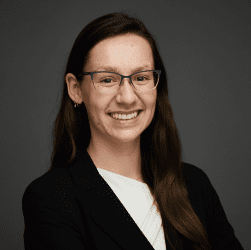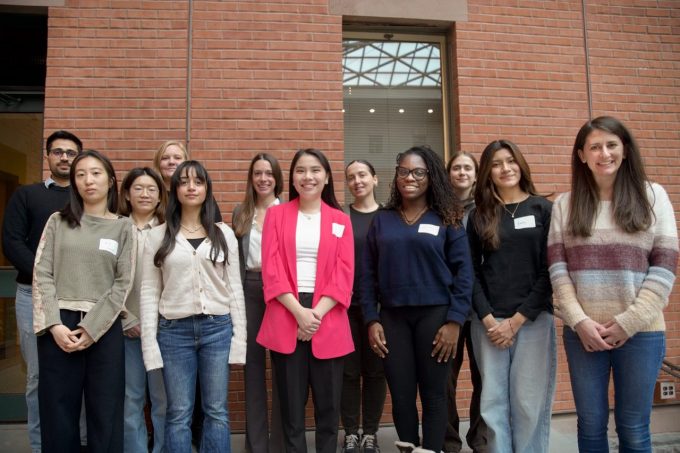The W.E. Cornell program helps STEM PhDs and postdocs commercialize their innovations and overcome the challenges of leading a growing technology-based business. Combining a proven entrepreneurship curriculum with a focus on leadership development and empowerment, participants will finish the program prepared to take the next steps in their entrepreneurship journey.
The Kauffman Foundation, a nonprofit that focuses on researching the entrepreneurial climate in the United States and supporting entrepreneurship programs, identifies some of the key barriers facing women entrepreneurs:
- Mentors are in short supply
- Implicit biases exist against women entrepreneurs
- Lack of access to venture capital
The W.E. Cornell program is a guided entrepreneurship and leadership program. Participants will have the opportunity to:
- Meet experienced mentors
- Build their network
- Hone their market fit and customer base
- Launch their innovations and pitch to investors and community members
Program Structure
W.E. Cornell is open to all students at Cornell doing research at the graduate level and higher including women, female-identified, and non-binary people.
The program is comprised of two workshops: Workshop 1 in January and Workshop 2 in February.
Workshop 1 – January
Participants will engage in a full-day, on-campus workshop focused on fostering entrepreneurial skills and community building with the cohort. The workshop will run from 8 a.m. to 5 p.m.
Workshop 2 – February
Participants will engage in a full-day, on-campus workshop focused on fundraising, operations, and next steps, as well as a pitch session to the W.E. Cornell advisory board members.
Advisory Board Pitch Session (Optional)
A select group of participants will pitch virtually to the W.E. Cornell advisory board members.
Why Investing in Women is Just Good Business
A growing body of evidence shows that institutional investors should consider female fund managers to improve their investment outcomes. The evidence suggest that women-led funds perform better, in part because they are more likely to invest in women-founded companies. Read more in this research brief, Why Investing in Women is Just Good Business.
Alumni Spotlights
Aiyana Fortin

Since completing W.E. Cornell, Fortin has continued her work on a cell-targeting knee injection, receiving support from two Ignite Innovation Acceleration grants. Fortin is also a member of the NSF Graduate Research Fellowship Program (GRFP) scholarship, as well as an NSF I-Corps program participant. While pursuing her Ph.D, she continues her work with help from undergraduate students in the Cayuga Healthcare Consulting Club.
“I came in thinking there was an entrepreneurial rule book,” said Fortin. “Through the W.E. Cornell program and other programs, I’ve realized that it’s not that cut and dry.”
Rui Huang
 After completing the W.E. Cornell program, Huang participated in the Life Sciences Technology Innovation Fellows program, as well as the NSF I-Corps regional course. Huang continues to pursue her Ph.D while also building her team, with the goal of bringing her ideas to life.
After completing the W.E. Cornell program, Huang participated in the Life Sciences Technology Innovation Fellows program, as well as the NSF I-Corps regional course. Huang continues to pursue her Ph.D while also building her team, with the goal of bringing her ideas to life.
“You don’t develop the product and force people to buy it,” said Huang. “Instead, you want to recognize where the people’s problems are and provide solutions for them. That was a major thing I learned throughout my entrepreneurship learning route.”

